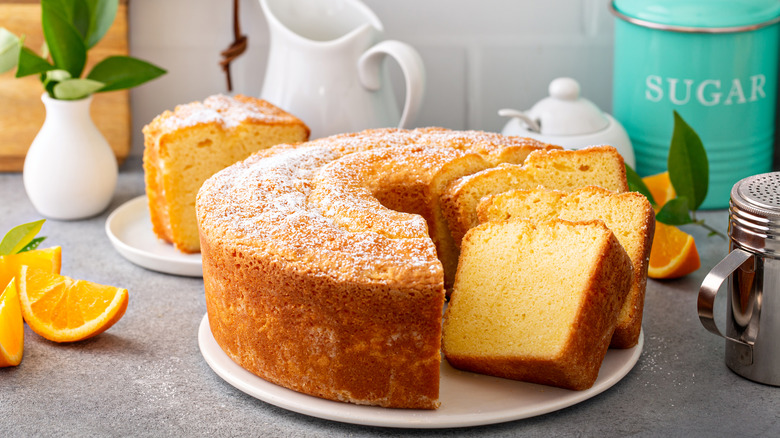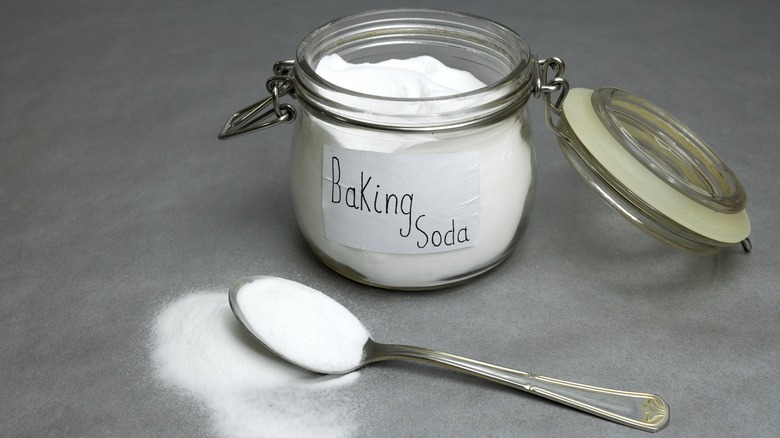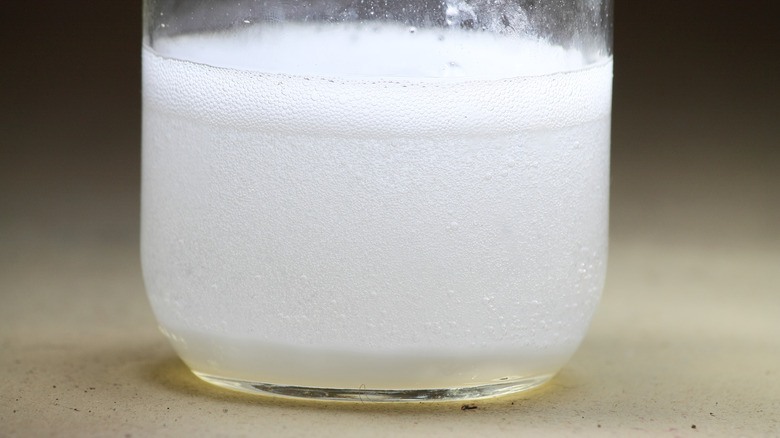2 Expiration Dates You Should Definitely Check Before You Make A Cake
Everyone loves cake. The sweet and moist dessert itself is a cause for celebration. Cakes are central to birthdays and bridal showers and are a treat for every day. Even though there are so many varieties, flavors, and brands of cake mix, everyone should know how to make one from scratch. It isn't difficult; there are just a few rules to follow.
All baking recipes are precise for a reason, according to Wired. Too much or too little of an ingredient could throw off the entire dessert. Too much flour can make it dense or dry, and too little flour may cause it to fall. According to Southern Living, a cake's texture can be off if the ingredients are not combined correctly. The perfect cake has an even texture and moist crumb, and it is beautifully browned and tender and stands up to frosting.
Two ingredients play a crucial part in all those desirable characteristics, and they come with expiration dates that you should check before using them to make a cake.
Baking powder and soda can expire
Baking powder and baking soda are the key ingredients you must check. Both can expire, and there's no way to tell just by looking at each if they will work in a cake batter. Baking powder is a combination of an acid and a base, and when combined with liquid, those two chemicals produce carbon dioxide that makes cakes rise. Baking soda is a base that, when combined with an acid, such as lemon juice or buttermilk, produces carbon dioxide for a light result. Both are vulnerable to humidity in the air, which reduces their effectiveness over time.
Baking powder typically has a shelf life of about three months once it's open, according to the USDA, although other sources, such as Utah State University, say it will be good for up to 24 months as long as it is stored in a cool, dry place. Most packages should be marked with the expiration date. To be safe, when you buy a can or box of baking powder, mark the date you purchased it, then buy a new can a year later.
Baking soda has a shelf life of about six months after the box is opened, according to Martha Stewart. The powder doesn't spoil, but it loses its ability to create gas over time because of moisture absorption.
Can you test baking powder and soda?
If you emptied your baking powder or soda into another container, the expiration date is probably lost in the mists of time. Can you test the powders to see if they are still effective?
David Lebovitz says to combine the baking powder with boiling water in a bowl. If it bubbles vigorously, it may still be fresh enough to give your cake lift. To test baking soda, it needs to be combined with vinegar to create carbon dioxide, per The Los Angeles Times. Put a small spoonful of baking soda into some vinegar (watch out — it may bubble furiously). If it does, the baking soda should still be good to use.
But the folks at Clabber Girl, who make an aluminum-free double-acting baking powder, say that testing baking powder in water may produce bubbles, but if the powder is old, the action may not be strong enough to leaven a cake. If you are making a cake for an important occasion and aren't sure of the expiration date, buying new baking powder and baking soda is probably best.


